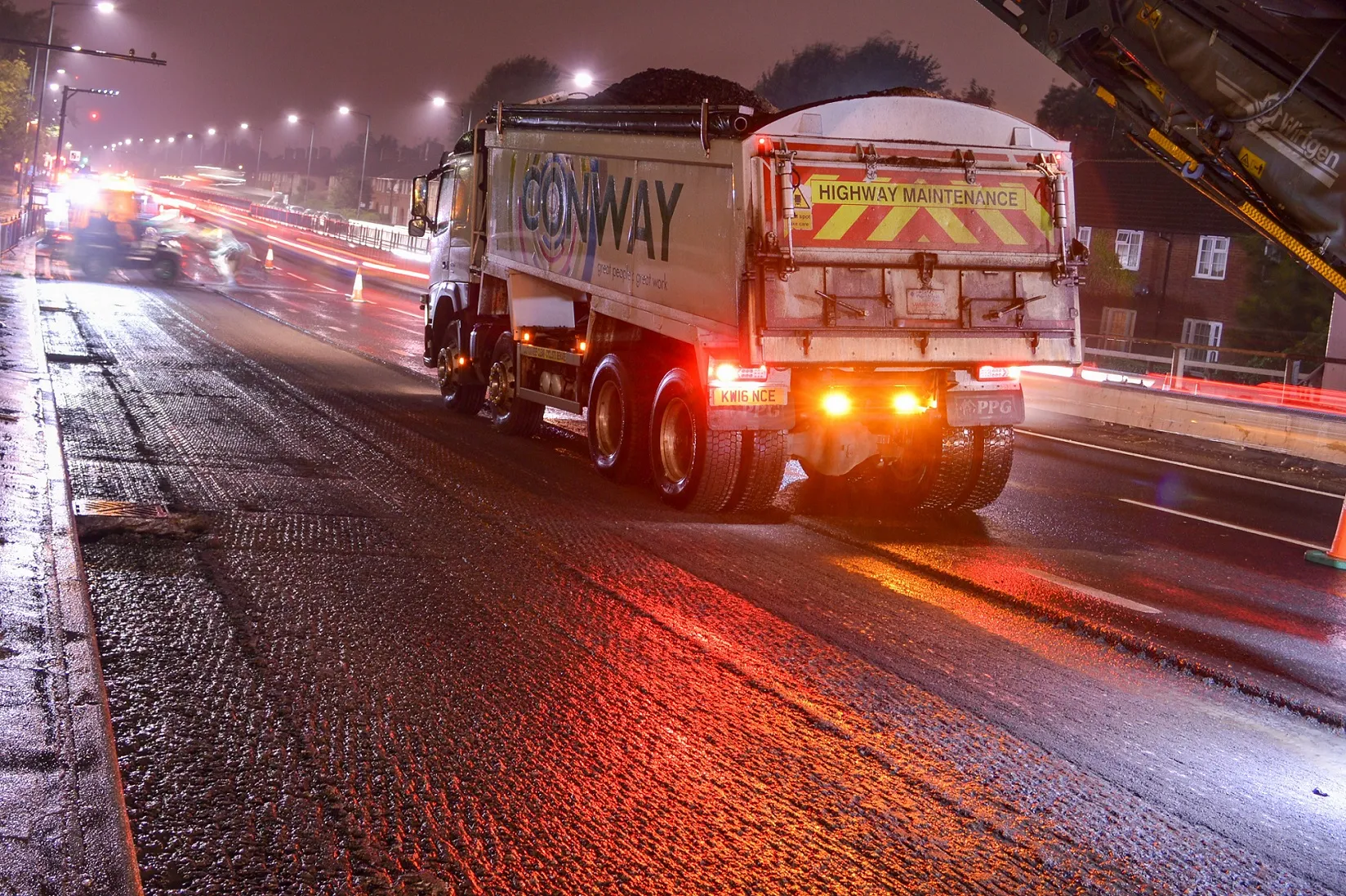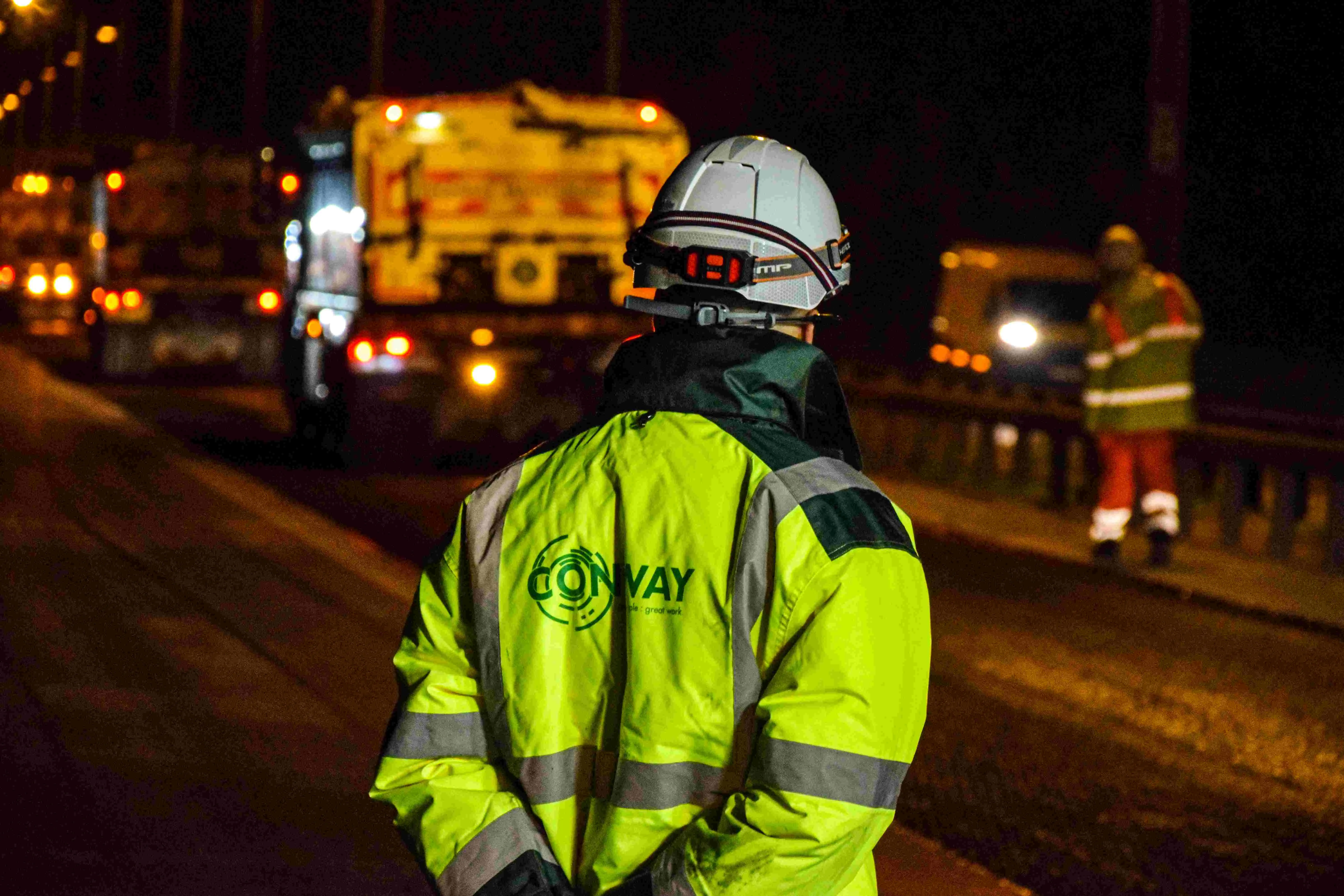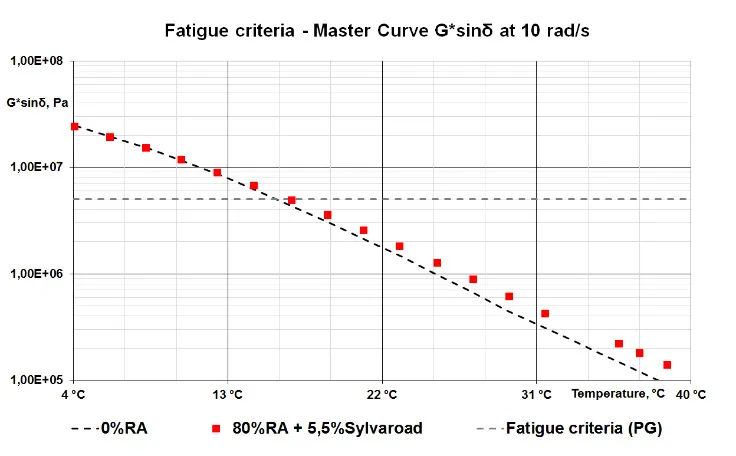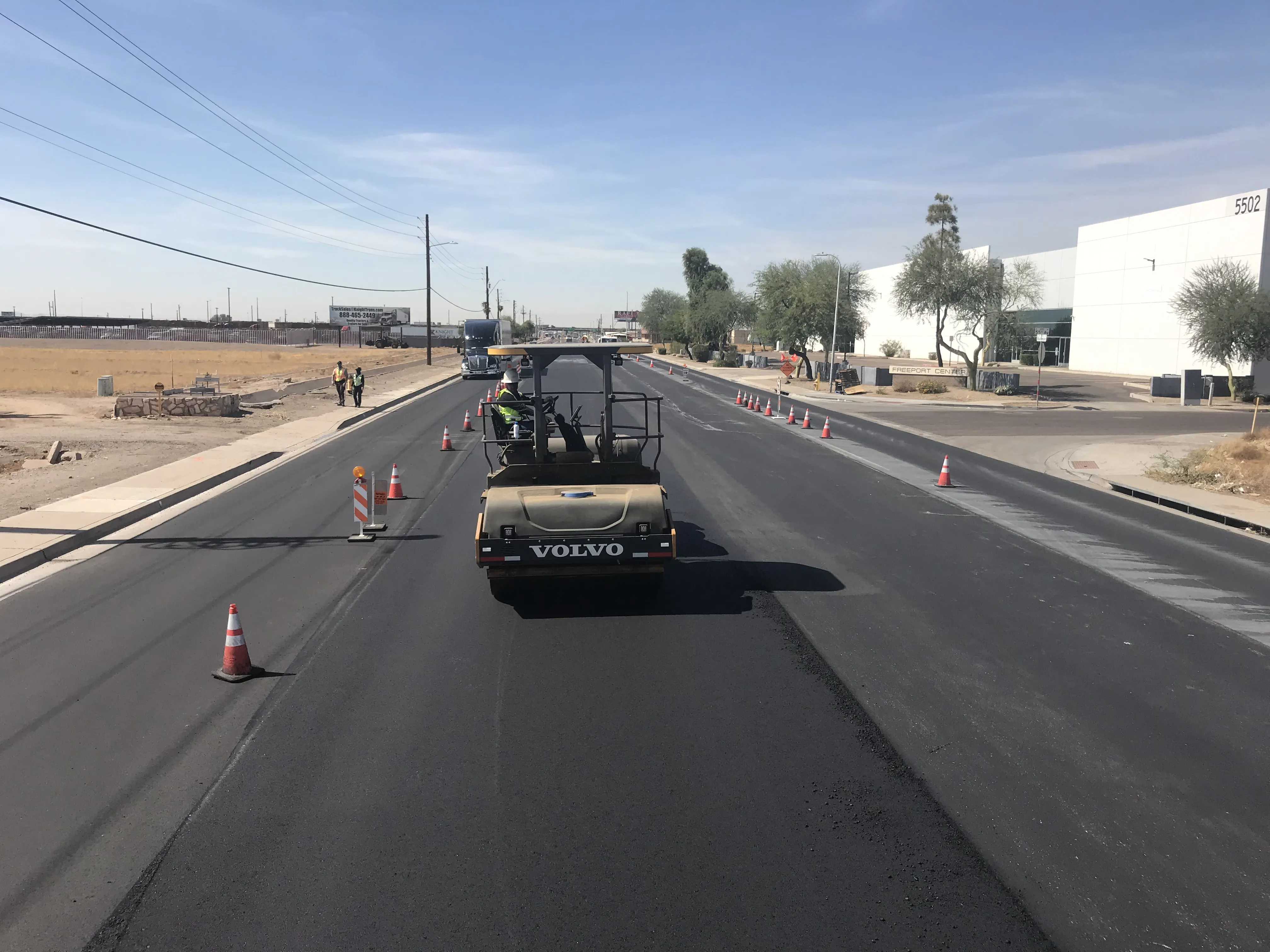
Infrastructure services company FM Conway and the UK’s
The A40 road in west London is one of the capital city’s arterial roads and has one of the highest traffic volumes on TfL’s network. As such, it was identified as ready for renewal and so an early candidate for a high recycled surface course mix.
The traffic volume on the A40 makes it similar to that of the route in the original high PSV (polished stone value) trial by TfL and FM
Until now, standard practice has been to limit recycled content of surface courses for motorways and A-roads to around 10%. For the A40 in west London, FM Conway laid an asphalt surface course containing 50% PSV recycled aggregate resurfacing over 20,000m². The PSV of the new surface course is comparable to a virgin aggregate mix. In this instance, TfL specified a PSV of 65.
In the A1 trial, a high RAP (recycled asphalt pavement) surface course mix was laid for comparison against a standard mix using virgin aggregate. When assessed against design criteria under Clause 942 of the UK’s Specification for Highways Works, the high recycled content mix performed as well as, if not better than, a virgin aggregate mix, in terms of skid resistance and durability.
FM Conway also undertook long-term age testing on the binder material on the A1, which was completed by the Nottingham Transportation Engineering Centre. These tests showed that the ageing profile of the new recycled mix was almost identical to that of a standard surface course mix using no, or low, proportions of RAP.
As well as supporting more sustainable use of materials, the A40 work saw FM Conway introduce a laying technique to speed up delivery and cut costs for the client TfL. In contrast to traditional methods where surfacing material is laid in two layers at a depth of 100mm, the new material was laid in one go at a depth of 70mm. This speeded up the resurfacing process and allowed road users to get back on the A40 more quickly.
The technique of laying only one 70mm layer of surface course mix allowed the material to be supplied at 150-160oC instead of the standard 180-200oC. This meant that FM Conway could complete a section of the A40 each night. The mix’s shorter cooling time enabled the team to reopen the road at 5am each morning. The works were completed in just over two weeks.
X-head: Why 70mm?
The recycled aggregate mix is denser than standard mixes generally available on the market and is also a better-performing material. This meant that FM Conway could reduce the depth of the new mix to 70mm.
Additionally, analysis of wear on the A40 prior to resurfacing had indicated that surface fatigue had affected only the first 60mm of the surface course mix so it made sense to renew only the upper level.
The material incorporates FM Conway’s own designed and manufactured Polymer Modified Bitumen (PMB). The addition of PMB to an asphalt mix can significantly improve the durability of highways assets by improving their resistance to rutting and cracking.
“Our trial with TfL in 2016 proved that high-recycled surface course materials are both able to perform and environmentally sustainable,” says Tim Metcalf, aggregates and asphalt director at FM Conway.
“There is a geological scarcity of high PSV aggregate in the south east of England. Using the roads as our quarry cuts costs, reduces carbon footprint and transport movements. We laid around 2,300 tonnes of the new mix at a depth of 70mm on the A40. The new mix meant that up to 15 fewer vehicles were needed each night.
“It’s a resource- and time-efficient approach and we’ll be working with customers and partners to help embed it across the industry.”
“Asphalt recycling does happen but so far the highways sector has been slow to accept it as best practice for work on both the strategic and local networks,” noted TfL’s highways technical manager, Herbert Micallef,
FM Conway
www.fmconway.co.uk









